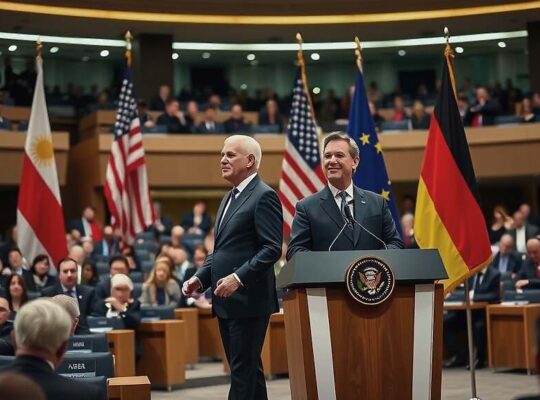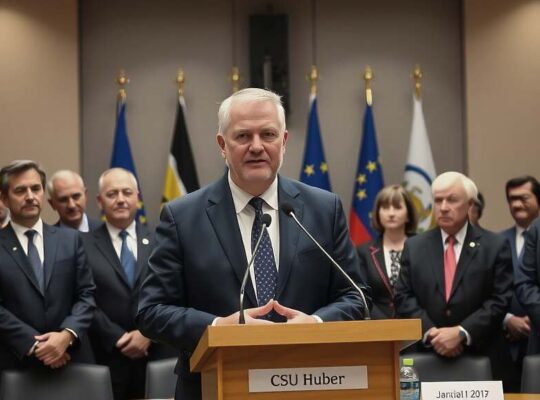The Alternative for Germany (AfD) maintains its position as the leading political force despite a slight decrease in voter support, according to the latest “Sonntagstrend” survey published by Bild am Sonntag. The poll, conducted by the research institute Insa, reveals the AfD currently commands 26% of voter preference, a marginal decline of one percentage point. This resilience, even amidst a minor setback, underscores the party’s continued appeal within a fractured political landscape.
The survey also indicates a simultaneous weakening of the Christian Democratic Union (CDU/CSU), which saw a similar one-point drop to 24%. The Social Democratic Party (SPD), the junior coalition partner, experienced a modest gain, edging up to 15%. However, this slight improvement appears insufficient to significantly alter the prevailing narrative of political discontent. The Green Party and the Left remain stable at 11% respectively, while the recently formed BSW and the Free Democratic Party (FDP) linger at 4% each. Smaller parties collectively account for 5%.
Beyond party preferences, the poll highlights a deepening crisis of confidence in the current governing coalition. A striking 66% of respondents expressed dissatisfaction with the government’s performance, a three-point increase from just two weeks prior. Only 25% reported being satisfied. This pervasive sense of disillusionment points towards a fundamental disconnect between the government’s agenda and the concerns of a significant portion of the electorate.
Furthermore, projections regarding the government’s longevity are overwhelmingly pessimistic. Nearly half (49%) of those surveyed believe the coalition will not last the full four-year legislative period until 2029, further eroding its political capital. Only 32% anticipate the coalition will endure, suggesting a growing fragility and raising questions about the government’s ability to effectively address the nation’s challenges. The data reflects not just a shift in political leaning, but a broader sentiment of frustration and a questioning of the government’s direction and capabilities.












